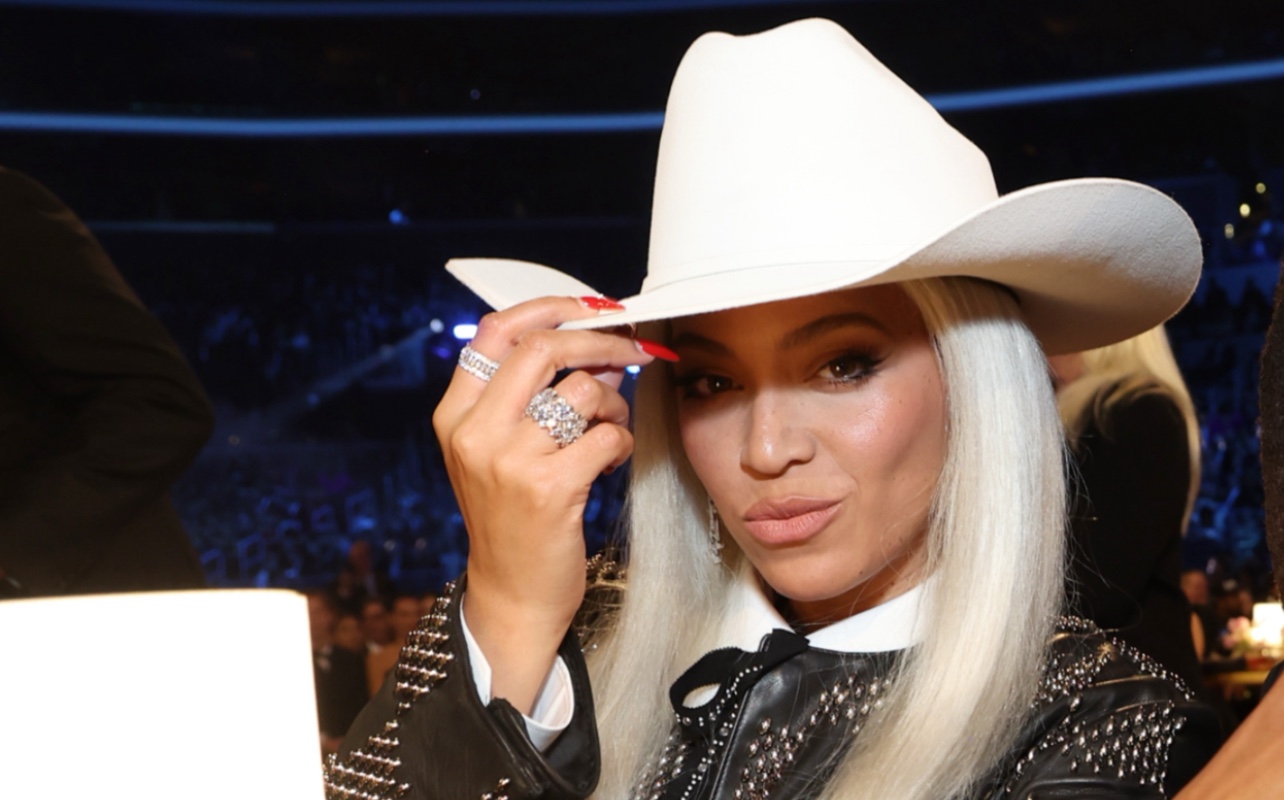
March 31, 2024
Beyoncé’s ‘Jolene’ Reinterpretation Praised By Dolly Parton
Dolly Parton’s 1973 song 'Jolene' depicts a woman pleading with her lover’s mistress to leave him alone. Beyoncé’s version, however, is less pleading.
Beyoncé released Cowboy Carter on March 29, her country-infused follow-up to 2022’s house-influenced Renaissance. Cowboy Carter is believed to be the second part of a trilogy of albums. On the album, she reinvents what is a country and western classic, Dolly Parton’s 1973 song “Jolene,” in which a woman pleads with her lover’s mistress to leave him alone. Beyoncé’s version, however, is less pleading, and more of a pointed reminder of the “Daddy Lessons” she issued on 2016’s Lemonade.
Parton herself is featured a few times on Beyoncé’s album, most prominently in a voicemail-style interlude that functions as the introduction to “Jolene.” Parton remarks: “You know that hussy with the good hair you sing about, reminded me of someone I knew back when, ‘cept she has flaming locks of auburn hair, bless her heart. Hair of a different color but it all hurts just the same.”
As The Hill reports, shortly after the release of the album, Parton signaled her support of Beyoncé‘s version of her song, posting a picture on Twitter/X which read: “Wow, I just heard Jolene. Beyoncé is giving that girl some trouble and she deserves it!!!” The post is captioned with a heart emoji and “signed” Dolly P, which is the title of Parton’s interlude.
Parkwood Entertainment, the production/entertainment company and record label founded by Beyoncé in 2010, said in a press release that the album is concerned with genre. Specifically, the album is concerned with the idea that genre doesn’t actually exist, something music historians have explicitly pointed out. Beyoncé herself expanded on this point in the release.
“The joy of creating music is that there are no rules,” Beyoncé said. “The more I see the world evolving the more I felt a deeper connection to purity. With artificial intelligence and digital filters and programming, I wanted to go back to real instruments, and I used very old ones.”
Beyoncé concluded by briefly describing her creative process during the making of the album. “My process is that I typically have to experiment,” she said. “I enjoy being open to have the freedom to get all aspects of things I love out and so I worked on many songs. I recorded probably 100 songs. Once that is done, I am able to put the puzzle together and realize the consistencies and the common themes, and then create a solid body of work.”
Beyoncé’s album was likely born in earnest after her 2016 performance of “Daddy Lessons” at the Country Music Awards, which Beyoncé alluded to in an Instagram post ahead of the album’s release.
“This album has been over five years in the making,” Beyoncé wrote . “It was born out of an experience that I had years ago where I did not feel welcomed…and it was very clear that I wasn’t.”
She continued, “The criticisms I faced when I first entered this genre forced me to propel past the limitations that were put on me. Act ii is a result of challenging myself, and taking my time to bend and blend genres together to create this body of work.”
Black country music fans, as The 19th News Org reports, also felt those same stings as they navigated the now- whitewashed country music genre.
Holly G., creator of the Black Opry, a community for Black country and Americana artists and fans and now a burgeoning record label, told the outlet that she believes fans of Beyoncé have an opportunity to both dive into the music and help Black country artists like the ones Beyoncé spotlighted on her album.
“I think that Beyoncé fans have such a huge opportunity here to really come in and help boost some of these artists,” Holly said. “I totally understand why Black people would not want to give country music a chance given the way that the industry has treated them, but I think they would really, really enjoy the music.”
RELATED CONTENT: Beyoncé Unveils ‘Cowboy Carter’ Artwork, ‘This Ain’t A Country Album, This Is A “Beyoncé” Album’